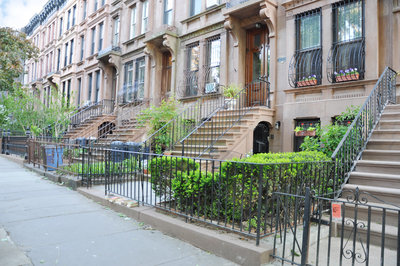A measure to change Hoboken’s rent control laws was narrowly defeated last year at the polls by a close vote of 8,248 to 8,196, but will reappear on this November’s ballot. A court decision Wednesday ended a year’s worth of litigation over the original outcome.
Last year’s referendum sought to permanently remove rent control from buildings with four or fewer rental units once a current tenant moves out, and to allow a one-time decontrol in buildings with five or more units. Those units would return to rent control under the new rent.
Single condos that are being rented out would also become exempt when a current tenant moves out.
With Hoboken’s current rent control laws, which apply to most apartment buildings built before 1988, rent increases are limited to a few percent each year, based on economic indicators. There are some exceptions: A landlord can apply for higher increases if he makes drastic improvements; he may pass along water and tax surcharges, and there is an optional vacancy decontrol of 25 percent every three years or more if a tenant moves out.
The same public question, on whether to decontrol rental rates in Hoboken, will appear on the November ballot two years in a row.
____________
However, tenants have argued that rent control keeps landlords from hiking prices and driving Hoboken’s remaining working class tenants out of town.
Why do it again?
The referendum was placed back on the ballot Wednesday after legal bickering over last year’s results.
The Mile Square Taxpayers Association, a landlord group, protested the narrow defeat of their ordinance in court, saying that 114 voters who were disenfranchised by Hurricane Sandy, and voted out of town, did not get to vote on that question.
Local tenant advocates, the Hoboken Fair Housing Association, fought to uphold the results.
Rent control has always been a contentious issue in Hoboken, and potential changes to the ordinance are always hotly contested.
HFHA argued that the MSTA’s list of 114 people was falsified, contained duplicates, and was made up somewhat of people that had once registered to vote in Hoboken but did not live there. Indeed, some of those voters’ affirmation statements, which any voter voting outside of their normal polling place must fill out, list current addresses outside of Hoboken.
But throughout the year, and at last week’s appeal in New Brunswick, judges denied HFHA’s right to argue the validity of the list, and sided with MSTA and Superior Court Judge Christine Farrington that “legal voters, casting legal votes, were deprived of the opportunity to vote on the public question.”
Ron Simoncini, a spokesman for MSTA, said on Wednesday that he felt “vindicated” by the results and that giving those displaced by Sandy the right to vote again is the right decision.
But Cheryl Fallick, a representative of HFHA and former member of the city’s rent leveling board, has maintained from the beginning that MSTA, funded by developers and landlords, was attempting to change the outcome via the courtroom.
In court on Tuesday, HFHA’s lawyer, Renee Steinhagen, petitioned judges to look closely a directive issued by the state after Sandy, but before the Nov. 5 election, that anyone be allowed to vote anywhere in New Jersey due to displacement. According to her argument, the directive was a clear indication that no voter could have been disenfranchised because there were multiple ways to obtain a Hoboken ballot at the polling place.
But Charles Gormally, MSTA’s lawyer, countered that a voter would likely walk into the polling place under the impression that they would have the chance to vote on all the public questions relating to their municipality.
What do the mayoral candidates think?
Steinhagen said that she will not pursue any further action to prevent the public question from being placed on the November ballot (the ballots are set to be printed on Monday), but that she is weighing whether the contents of the appeal are worth bringing to the New Jersey Supreme Court. She said that she will make that decision some time in the next six weeks.
In the meantime, both MSTA and HFHA will reignite their campaigns, and members of both groups have said that they expect Hoboken’s mayoral candidates to weigh in on the issue.
Last year, Mayor Dawn Zimmer sided with the tenant advocates, which stirred a bit of anger from some of the landlords.
“I think there’s going to be a lot of resolve from property owners to get out and vote on this, and I think the candidates are going to have to weigh in,” said Simoncini.
Fallick also insisted that each candidate make his or her opinion on the rent control debate known.
“There’s this stigma about the rent control issue,” she said. “In an election season where there are people running for office, it’s like the third rail, no one wants to touch it. But this time they’re going to have to come out with it because this is something that affects a lot of people and affects the way they will vote.”
As to their own strategies, both sides said that they would work hard to discredit the other.
Dean DeChiaro may be reached at deand@hudsonreporter.com
